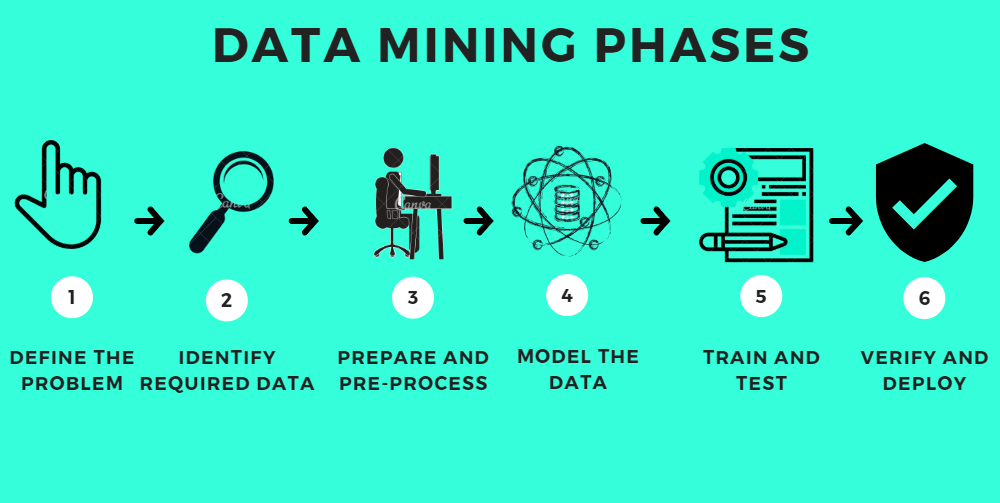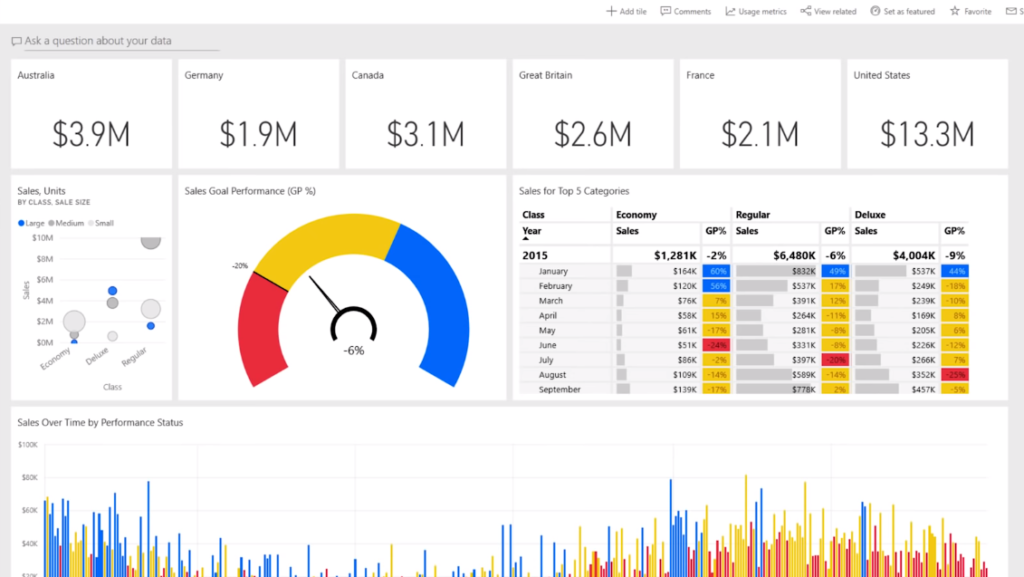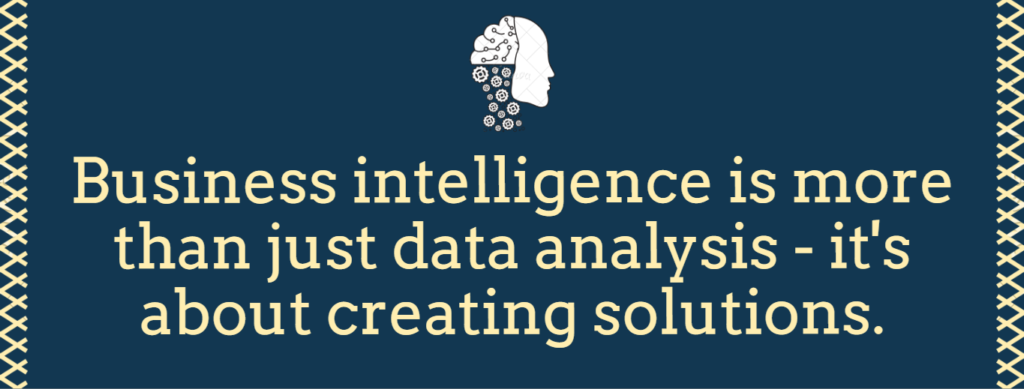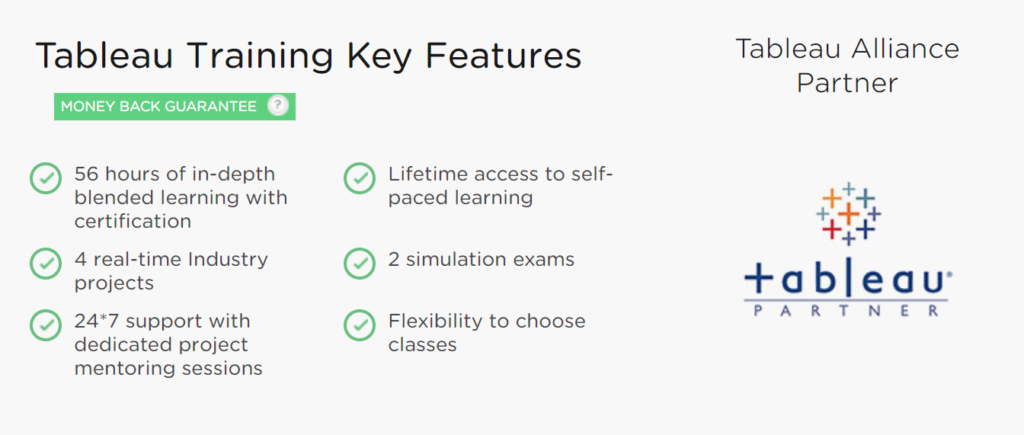Working in the field of business intelligence is a lucrative endeavor. However, if you want to become a successful business intelligence developer, there are specific steps that you need to undertake.
You need to have a particular set of skills, qualifications, and knowledge of the tools and software to transform data into useful insights for businesses.
Although becoming a BI developer requires a significant amount of your time and energy, it’s ultimately worth your investment since more and more businesses are willing to spend on business intelligence, predictive analysis, performance management, and more.
If you’re aspiring to jump into the BI bandwagon, then you’re in the right place.
In this guide, I will share with you five steps on how to become a business intelligence developer.
4 Steps to Become a Business Intelligence Developer

Step 1. Obtain your degree
Normally, working as a Business Intelligence (BI) developer will require you to have a bachelor’s degree in software engineering, computer science, and other related fields.
You can take classes related to Management Information System (MIS), building software, economics, data science.
Taking up business administration classes is also crucial to help you learn organizational operations, business processes, and how to handle business data.
A master’s degree may also be required for some BI positions so you might want to consider including that in your learning plan if you’re going to advance your career in the field in the future.
You will also need to learn as much as you can about data and everything related to processing and analyzing data such as database design, data architecture, data mining, and more.

By getting a degree related to the BI field, you’ll have the right qualifications and in-depth knowledge to help you launch a career in business intelligence.
Step 2. Learn basic skills
The business intelligence developer role is rapidly-growing, and most companies that have data need at least one person who has a good understanding of BI.
Depending on the goals, needs, and use that businesses have for their data, back-end or technical skills and front-end skills, both play a huge role in BI.
As such, you will need to develop a good balance of front-end and back-end skills.
For instance, if you want to focus on the front-end side of BI, you can do data organizing with different parties and translate them to the management department.
On the other hand, if you want to work on technical or back-end skills, you can focus on developing skills such as warehouse data and other data-related tasks.
Back-end or Technical Skills
Learning basic BI developer technical skills is a crucial step to starting your career in business intelligence.
To help start you off, here are some of the necessary skills you need to learn for BI development.
- Data warehouse, Structured Query Language (SQL), and relational database.
- Coding skills such as C#, JavaScript, VB, free code editors, and more.
- SQL Server Reporting Services (SSRS)/SQL Server Analysis Services(SSAS)/SQL Server Integration Services (SSIS), Extract, Transform, Load (ETL), Report Builder.
- DAX, Power BI, and security rules.
Here’s a sample Power BI dashboard.

When you know the basics, you’ll have better chances of advancing your technical and other BI skills.
Front-end Skills
Front-end BI skills are geared more towards the communication and presentation of data to others, which makes them crucial things to add to your BI developer arsenal of skills.
Here are a few front-end BI skills you need to learn.
(i) Analytic skills
Most business intelligence analyst and developer-related skills deal with using data for making better decisions.
This requires you to be good at examining various data sources and make accurate conclusions based on them.
(ii) Communication skills
Aside from gaining intelligence developer-related skills, you will also need to communicate your analyses and findings to other people.
Your role will include communicating technical concepts to non-technical personnel, so you need excellent skills to translate jargon into layman terms.
(iii) Problem-solving skills
Business intelligence isn’t just about data analysis, but it’s also about creating solutions for real-world business problems and developing business strategies using that data.

(iv) Specific industry knowledge
While you can learn some specific industry knowledge on the job, you need to have a solid understanding of the industry’s dynamics, especially the areas in the field that you want to work in.
As your knowledge and expertise in the industry grow, so will your ability to link data with providing solutions for businesses.
(v) Business sense
You need to quickly understand the business model that your company uses and learn to tailor your efforts in a way that will give them maximum value from your KPIs while making strategic decisions to achieve sustainable success.
(vi) Attention to details and forward-thinking
By its nature, business intelligence requires incredibly detail-oriented work. As a BI developer, you’ll be often tasked to turn the smallest fragment of data and turn it into actionable insight.
You’ll need to practice forward-thinking and the ability to pay close attention to details to help you succeed in BI.
Regardless of whether you choose to focus on front-end or back-end tasks, developing business intelligence skills are necessary to have a solid foundation on which to build your career.
Learning BI skills can also help widen your prospects and increase your potential for success in business intelligence.
Step 3. Gain experience
A good start in your business intelligence career is to get an internship at companies with analytics department.
Another way of gaining relevant experience is by working as a data visualization or data scientist intern for BI service providers to help you gain primary hands-on experience.
This is also a great way to be immersed in several BI technologies, understand the fundamentals of the tools, and learn to use business intelligence software to help you gather, analyze, transform, and report datasets.
Here’s a tip: When applying for your internship, express clearly that you are interested in becoming a business intelligence developer.
Doing so can help you focus on BI development and its related functions, tasks, and tools to further your skills plus experience to help establish your career as a BI developer.
Step 4. Get Certifications
Some companies might not require you to have certifications, but being certified in specific functions, tools, and courses like a Tableau Certification Training Course can help you get an edge over others working in the same field.
You can do a bit of research about how to get certifications by checking the course offers, the tools that will be introduced, and more.

After all, being certified shows potential employers that you are equipped with the right skill set and training required of a qualified business intelligence developer.
Here are a few business intelligence certifications that you might want to consider getting.
- Certified Business Intelligence Professional
- QlikView Data Architect
- QlikView Business Analyst
- MCSA: BI Reporting
- MCSE: Data Management and Analytics
- MCSA: SQL 2016 BI Development
- Tableau Server Certified Professional
- Tableau Desktop Certified Professional
By getting certifications like these, you can expand your skill set and learn the BI technologies and processes.
Plus, having certifications means you’ll be able to demonstrate the knowledge and skills required to complete the stages of any BI project, no matter the size of the organization.
What’s Next?
Launching your career as a business intelligence developer takes some time and effort, but with the growing demand for BI-related work, your investment will all be worth it.
By taking the necessary steps to learn about BI and acquire skills, you’re on your way to launching a successful career as a business intelligence developer.
Is this information useful? Please click on the share button. Cheers!
More Read:
- TOP 5 IT Skills To Skyrocket Your IT Career
- How Can A Digital Marketing Course Speed Track Your Career?
- Investing in Yourself Always Pays Off: If You Aren’t Doing These 5 Things to Advance Your Career, You’re Lagging Behind!
- How to Become a Successful Forex Trader
Author: Jimmy Rodela















